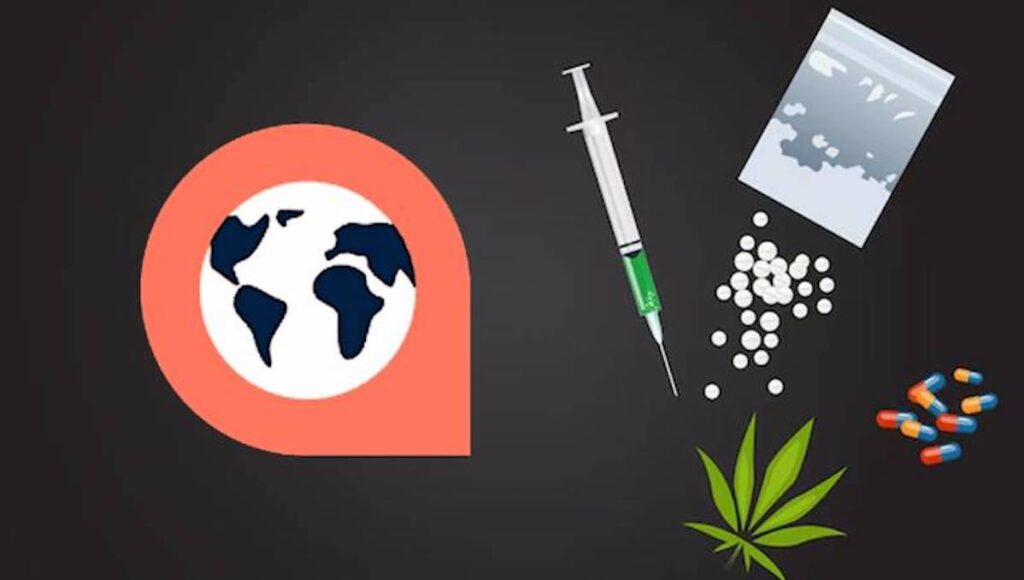Tarun Karthick
Campbell Bay, 28 November 2024
The battle against drugs cannot be won by law enforcement agencies alone. It is a fight that calls for the collective responsibility of every citizen, every member of society. Without active involvement from the public, the war on drugs in the Andaman and Nicobar Islands will continue to face insurmountable challenges.
Recently, the seizure of a staggering 6000 kilograms of methamphetamine from a Myanmarese vessel in Andaman waters has thrown a harsh light on the dangerous scale of drug trafficking in our region. With a market value of INR 36,000 crores, the drugs were destined for international shores—yet, the threat doesn’t end there. The waters around our islands have become trade routes for global drug cartels, but the real danger lies in what happens when those drugs leak into our local communities.
While the seized shipment wasn’t intended for distribution within the islands, we cannot ignore the simple truth: trade routes and trasit points often become illicit markets. The vast sums of money generated by this trade are tempting for local anti-social elements, who may find themselves drawn into these criminal networks, bringing drugs into the hands of our youth and creating havoc in our communities.
The ocean itself has betrayed us—drugs have washed ashore due to both known and unknown reasons, giving drug traffickers an opportunity to exploit the situation. These drugs then fall into the hands of peddlers, who introduce them to the streets, infecting the next generation and leaving behind a trail of devastation.
So, what can ordinary citizens do to curb the menace of drugs and protect the islands and their people? The answer is simple: active participation, vigilance, and empathy.
- Vigilance and Reporting
The first and most powerful tool in a citizen’s arsenal is the ability to report suspicious activities. Every day, ordinary people witness the activities happening around them. Whether it’s hearing rumours about illegal trade or observing unusual behaviour in their neighbourhoods, they are often the first to notice something amiss. This information, however small or seemingly insignificant, can be the key to preventing the spread of drugs.
Citizens must understand that passing on this information to law enforcement is not only important but vital. Whether it’s through the local police or responsible media professionals, any tip-off—no matter how unverified—can make a difference. The phone numbers of all Station House Officers (SHOs) are publicly available on A & N Police website, and it takes just a moment to make a call or send a message that could stop a crime in its tracks.
2. Combatting Stigma and Supporting Rehabilitation
The war on drugs is not just about arresting the culprits but about helping the victims. Drug addiction is not a moral failure; it is a disease, and like any other illness, it requires treatment, compassion, and support. Yet, in many parts of the world, including here in the islands, addiction is stigmatised. Those who fall into the grips of addiction are often seen as undeserving or weak, which only deepens their isolation.
It is time for society to change its attitude. Citizens must understand that addiction is not a choice but a medical condition. Family members of addicts need support, not judgment. The community must encourage these individuals to seek help, to enter treatment programs, and to embrace the chance for recovery.
This begins with open conversations about addiction, where it is seen not as a personal failing, but as a disease to be treated like any other. We must stop turning our backs on those struggling with addiction and instead offer them the compassion, support, and resources they need to recover.
3. Advocating for Change
The power of words cannot be overstated. In a society where silence allows stigma to thrive, speaking up is an act of rebellion. Ordinary citizens can take to social media, write articles, speak in public forums, and spread awareness about the importance of rehabilitation, not just for the addict but for the whole society. We need to normalise addiction treatment and show that recovery is possible.
Drug addiction is not a sentence—it is an opportunity for healing. When society speaks out in favour of recovery and de-stigmatises the process, more people will feel empowered to seek help before they spiral deeper into the darkness of addiction.
4. Collaborative Effort
The fight against drugs is a multi-faceted effort that requires the collaboration of law enforcement, local government, healthcare professionals, media outlets, and the general public. Citizens, armed with knowledge and empathy, can become the most valuable allies in this fight. Every individual who chooses to speak out, report a crime, or support someone in recovery is a soldier in this battle.
While the drugs may come from afar, their impact is deeply local. What starts as a global trade route can end up in the hands of local criminals, affecting families and futures. Only through active, coordinated efforts can we dismantle the networks that bring drugs into our communities.
Conclusion: A Shared Responsibility
In the end, the war on drugs is not just the responsibility of the police, nor is it the sole duty of lawmakers or government officials. It is a shared responsibility—a duty of every citizen to be vigilant, compassionate, and proactive. Every report, every act of kindness to an addict, every voice that speaks out in support of rehabilitation is a step toward a drug-free future.
If we fail to act, the drug menace will only grow, consuming more lives and destroying more families. But if we rise to the challenge, we can turn the tide and reclaim our islands for future generations. Together, we can make a difference—one report, one act of kindness, one conversation at a time.

